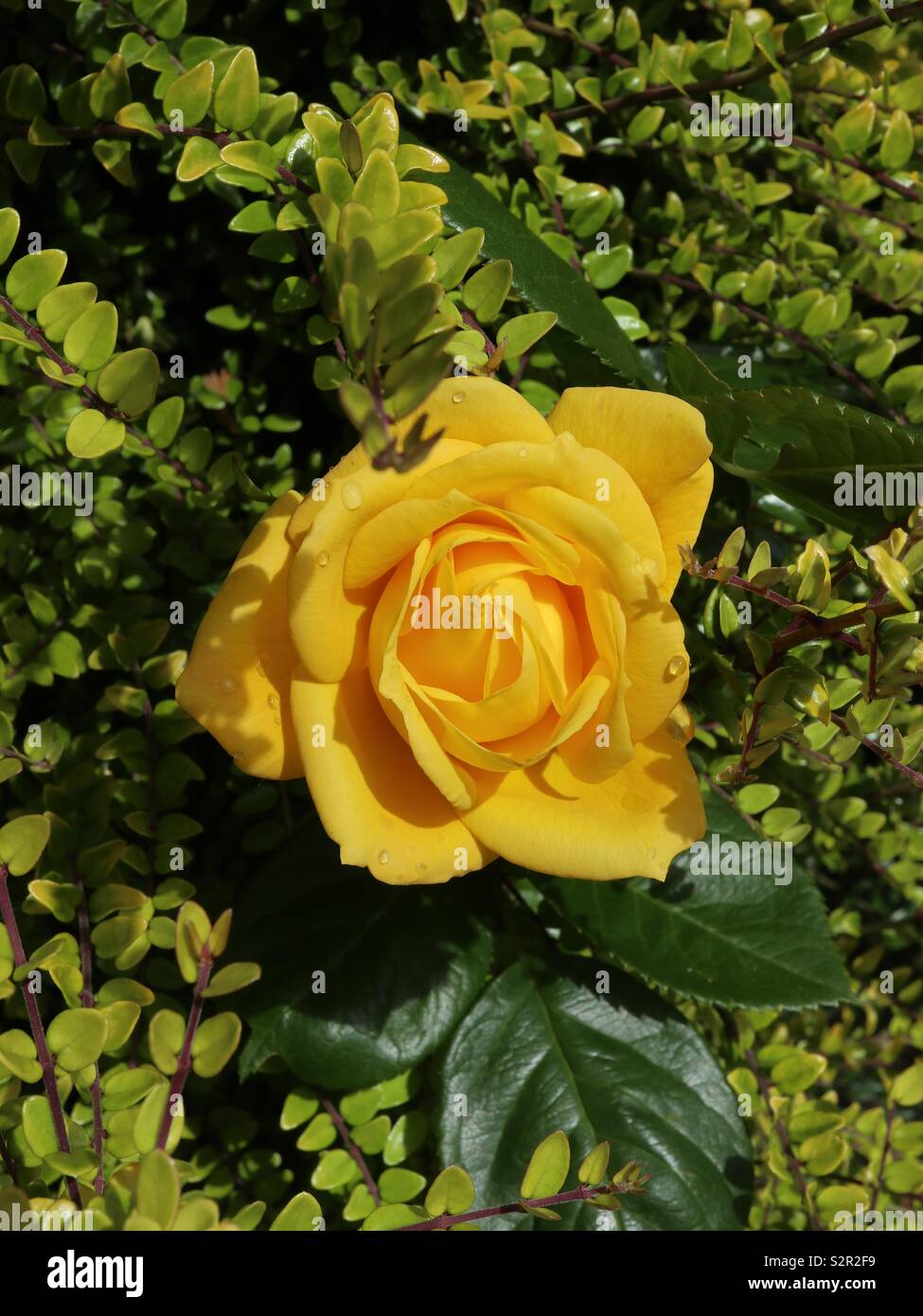Are Rose Bushes Evergreen
The answer to this question is a bit complicated. While rose bushes can be evergreen, it depends on the climate and variety of rose bush. In general, evergreen plants are those that keep their leaves year-round.
However, some evergreen plants may drop their leaves in very cold weather or during a drought. Rose bushes are typically deciduous, meaning they lose their leaves in the winter and grow new ones in the spring. However, there are some varieties of roses that are evergreen.
These include varieties that originated in warm climates, such as China and Japan, as well as some hybrid varieties bred to be more tolerant of cold weather. If you’re not sure whether your rose bush is evergreen or deciduous, ask your local nursery or look it up online.
Most rose bushes are not evergreen, meaning they lose their leaves in the fall and remain dormant through the winter. However, there are a few varieties of evergreen roses, such as the Christmas rose and the Lenten rose, that retain their foliage year-round. These types of roses are typically found in warmer climates where freezing temperatures are less common.
10 Evergreen Shrubs and Bushes for Your Garden 🪴

Credit: www.alamy.com
Are Rose Bushes Evergreen
No, rose bushes are not evergreen. They are deciduous, meaning that they lose their leaves in the fall and grow new ones in the spring.
How Often Should I Water My Rose Bush
It is generally recommended to water rose bushes about once a week. However, this may need to be adjusted based on the current weather conditions. If it has been particularly hot and dry, then your rose bush may need to be watered more frequently.
Conversely, if it has been cool and wet, then you may be able to get away with watering less often. Ultimately, you will need to use your best judgement to determine how often to water your rose bush.
What Type of Fertilizer is Best for Rose Bushes
If you’re looking to give your rose bushes a little extra boost, you may be wondering what type of fertilizer is best. Here’s a quick rundown of the different types of fertilizer and how they can benefit your roses:
Organic fertilizers are made from natural materials like manure or compost.
They release nutrients slowly over time, so they’re great for feeding plants that need a steady supply of nutrition. However, because they break down slowly, organic fertilizers can also be less effective in the short-term.
Inorganic fertilizers are typically made from minerals or synthetic substances.
They tend to work more quickly than organic fertilizers, but they can also be more likely to cause burn if not used properly. Inorganic fertilizers can be either water-soluble or slow-release.
Water-soluble inorganic fertilizers are mixed with water and applied directly to the roots of plants.
They work quickly, but their effects don’t last long, so they need to be reapplied regularly. Slow-release inorganic fertilizers are coated with a material that controls how quickly they dissolve. This allows them to release nutrients over a longer period of time (usually up to several months), which means you don’t have to apply them as often.
The best fertilizer for your rose bushes will depend on your specific needs and goals. If you’re looking for quick results, water-soluble inorganic fertilizer may be the way to go. On the other hand, if you want something that will last longer and provide a steadier supply of nutrition, slow-release inorganic fertilizer or organic fertilizer may be better choices.
Talk to your local nursery or gardening center staff for guidance on choosing the right type of fertilizer for your roses!
How Do I Prune My Rose Bush
If you have a rose bush that needs pruning, the best time to do it is in late winter or early spring before new growth begins. Here are some tips on how to prune your rose bush:
1. Start by removing any dead, diseased, or damaged wood.
Cut these branches back to healthy wood or all the way back to the ground if necessary.
2. Next, thin out the bush by removing any overcrowded or crossing branches. These can rub together and damage the bark, which can lead to disease problems.
3. Finally, cut back remaining branches by one-third to one-half their length. This will encourage new growth and help keep your bush healthy and productive.
Be sure to sterilize your pruning tools before and after use with rubbing alcohol or a household disinfectant like Lysol® to prevent the spread of disease.
Will Banana Peels Help Rose Bushes Stay Green?
Using banana peels as fertilizer for rose bushes is an idea commonly discussed among gardeners. Some believe that the nutrients found in banana peels can enhance the greenness of rose bushes, although scientific evidence is limited. While it may provide some benefits, it’s crucial to supplement with other balanced fertilizers to ensure optimal growth and health for your roses.
When is the Best Time to Plant a Rose Bush
The best time to plant a rose bush is in the spring, after the last frost. You’ll want to choose a spot that gets plenty of sunlight and has well-drained soil. Be sure to dig a hole that’s wide enough and deep enough to accommodate the roots of your bush.
Once you’ve planted your bush, water it well and give it some time to adjust to its new home before fertilizing.
Conclusion
Are rose bushes evergreen? This is a common question among gardeners. The answer is yes and no.
Some varieties of rose bushes are evergreen, while others are deciduous, meaning they lose their leaves in winter. Evergreen varieties include the Christmas Rose (Helleborus niger) and the Lenten Rose (Helleborus orientalis). Deciduous varieties include the Hybrid Tea Rose and the Floribunda Rose.
